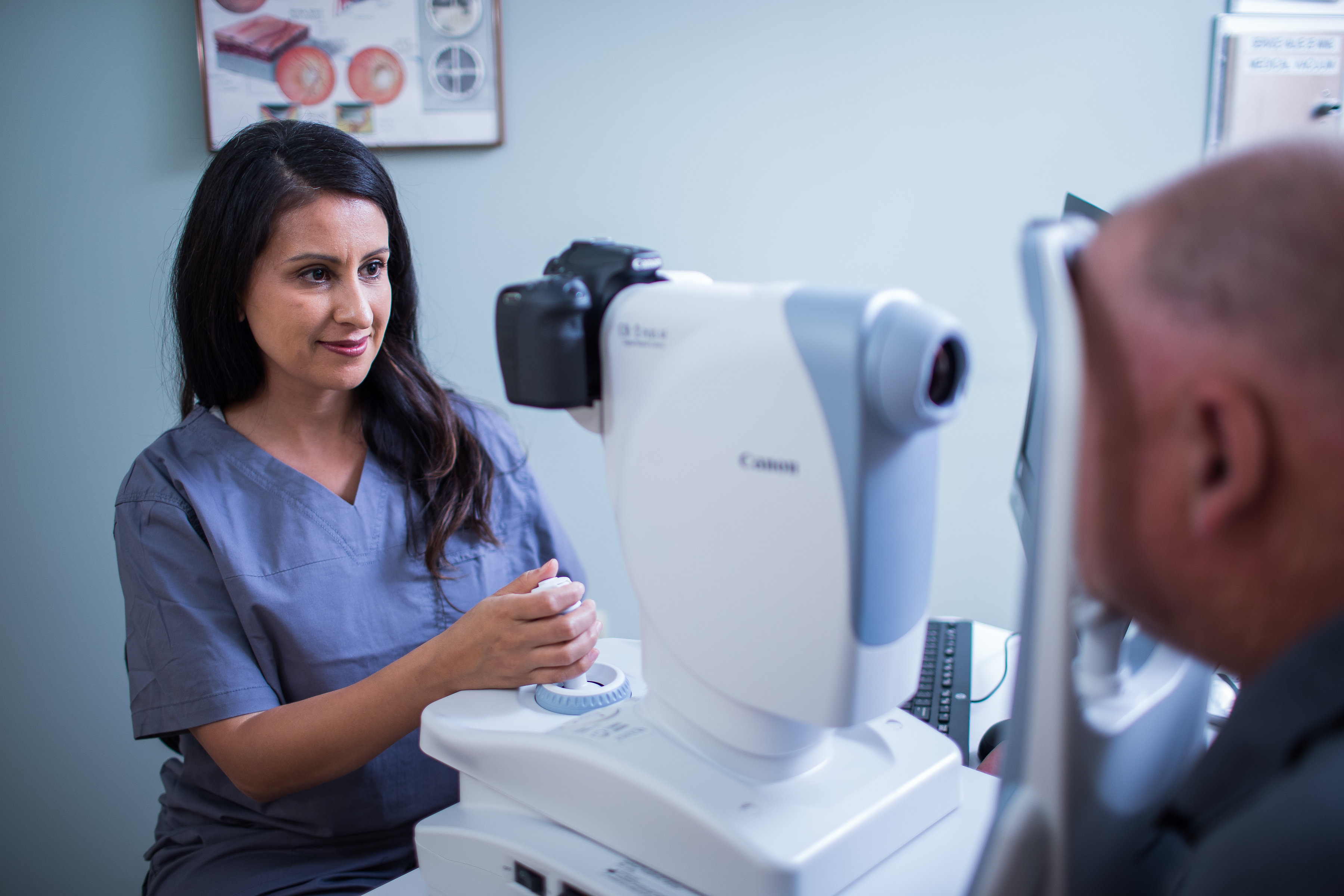Andalusia Eye Doctors: Committed Vision Take Care Of Every Patient
Andalusia Eye Doctors: Committed Vision Take Care Of Every Patient
Blog Article
Is Refractive Surgery Right for You? Factors to Think About for Better Eyecare
In the world of eye care, the choice to undergo refractive surgical procedure is a substantial one that demands thoughtful factor to consider. From the ins and outs of one's eye health and wellness to the details of day-to-day practices and personal assumptions, each facet holds value in the broader landscape of refractive surgical procedure candidateship.
Eye Wellness Analysis
When thinking about refractive surgery, a comprehensive eye health and wellness evaluation is vital to analyze the suitability of the treatment for each person. eye center andalusia. This analysis includes a collection of examinations and examinations conducted by an eye care specialist to determine the total health and wellness of the eyes, the existence of any kind of hidden conditions, and the stability of the refractive error
During the examination, various elements are taken into account, such as the person's case history, existing eye prescription, corneal density, pupil dimension, and tear film top quality. These assessments assist to identify any contraindications to refractive surgery, such as corneal irregularities, cataracts, or unattended eye infections. In addition, the examination assists to take care of person assumptions regarding the potential outcomes of the surgical treatment based on their one-of-a-kind eye features.
Ultimately, the eye wellness evaluation is important in ensuring the safety and efficiency of refractive surgical procedure, as it gives useful understandings into the person's eye health and wellness condition and helps determine the most ideal therapy alternatives for achieving optimal aesthetic outcomes. (neurologist andalusia)
Lifestyle Evaluation
A complete way of living evaluation is important in establishing the suitability of refractive surgical procedure for an individual's visual modification demands. Lifestyle elements such as profession, pastimes, and everyday activities play an essential function in the decision-making process relating to refractive surgical treatment. Individuals with occupations that entail a high level of physical activity or exposure to environmental aspects may have different visual demands compared to those with less active desk tasks. Recognizing exactly how an individual's way of living may affect their vision post-surgery is necessary for managing assumptions and guaranteeing optimal results.
Furthermore, way of living habits such as sporting activities involvement, outside tasks, and even skin care routines can affect the recovery process and overall success of refractive surgical treatment. As an example, individuals that participate in contact sports may need to take added preventative measures to safeguard their eyes throughout the healing duration. Furthermore, individuals with considerable sunlight direct exposure may require additional post-operative care to avoid problems. By conducting an extensive way of life evaluation, eye treatment professionals can customize their suggestions and therapy plans to meet the special requirements of each patient, ultimately resulting in boosted aesthetic results and satisfaction.
Expectation Placement

Setting realistic expectations includes detailed pre-operative conversations between the ophthalmologist and the patient. The doctor must transparently interact the prospective threats, advantages, and limitations of the treatment (eye doctors in andalusia). Clients need to understand that while several individuals accomplish 20/20 vision or much better complying with refractive surgery, some might still require glasses for specific activities like analysis or driving at evening. Taking care of these assumptions helps stop frustration and discontentment post-surgery, bring about a more positive overall experience for the patient.
Threat Analysis

Variables that might raise the threat of complications consist of age, specific medical problems like autoimmune diseases, unpredictable vision prescription, thin corneas, and unrealistic patient expectations. Additionally, picking a skilled and competent doctor, following pre and post-operative care guidelines carefully, and revealing any relevant clinical background can assist mitigate threats.
To minimize the likelihood of complications, eye doctors conduct comprehensive pre-operative evaluations to recognize any contraindications to surgical treatment. They likewise go over the possible risks and advantages with people throughout the consultation process. By engaging in open interaction and shared decision-making, both the individual and the eye doctor can work with each other to figure out if refractive surgery is the ideal option based upon private threat accounts and wanted results.
Appointment Value
Thinking about the critical role of informed decision-making in assessing risks and possible issues in refractive surgical treatment, the examination procedure holds significant significance in directing people in the direction of ideal outcomes. Throughout the assessment, the ophthalmologist assesses the person's eye health and wellness, refractive mistakes, and general viability for surgical procedure. This first assessment is vital in identifying one of the most ideal procedure for every person, thinking about variables such as corneal density, student size, and existing eye conditions.
Furthermore, click to find out more the consultation acts as a chance for individuals to discuss their assumptions, problems, and any type of inquiries they may have concerning the surgical treatment. Clear communication between the doctor and the individual is vital to ensure sensible expectations and an extensive understanding of the possible risks and benefits entailed.
In addition, the appointment allows the specialist to discuss the various surgical choices offered, their particular end results, and the post-operative care required. This comprehensive conversation encourages clients to make knowledgeable decisions concerning their eye care, leading to far better contentment and results post-surgery.
Verdict
Finally, people thinking about refractive surgical treatment ought to go through a detailed eye wellness analysis, analyze their lifestyle routines, align their assumptions with potential results, analyze the connected threats, and focus on appointments with eye care specialists. These aspects play a crucial role in establishing the suitability of refractive surgery for every individual, making sure optimal end results and complete satisfaction with the treatment.
People considering refractive surgery often have high assumptions pertaining to the outcomes, anticipating excellent vision without the requirement for glasses or contact lenses. While refractive surgery can considerably boost vision and decrease dependence on aesthetic aids, it is critical for individuals to recognize that results might differ based on individual factors such as the level of refractive mistake, corneal density, and overall eye health and wellness.
By engaging in open interaction and shared decision-making, both the ophthalmologist and the person can function with each other to establish if refractive surgery is the right selection based on specific threat profiles and wanted outcomes.
Taking into consideration the vital role of advice notified decision-making in analyzing risks and prospective complications in refractive surgical procedure, the examination procedure holds significant significance in guiding individuals in the direction of optimum outcomes. During the assessment, the ophthalmologist examines the client's eye health, refractive errors, and overall suitability for surgical procedure.
Report this page